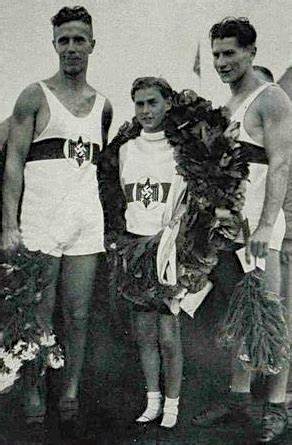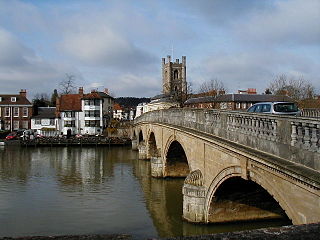
The men's coxed pair competition at the 1972 Summer Olympics in Munich took place from 27 August to 2 September at the Olympic Regatta Course in Oberschleißheim. There were 21 boats from 21 nations, with each nation limited to a single boat in the event. The event was won by East German crew Wolfgang Gunkel, Jörg Lucke, and coxswain Klaus-Dieter Neubert; it was the first medal in the event for East Germany as a separate nation. Czechoslovakia (silver) and Romania (bronze) also won their first medals in the men's coxed pair.

The men's coxed four competition at the 1972 Summer Olympics in Munich took place from 27 August to 2 September at the Olympic Reggatta Course in Oberschleißheim. There were 14 boats from 14 nations, with each nation limited to a single boat in the event. The event was won by West Germany; it was the nation's first medal as a separate team, but the third time in four Games that a West German crew had won gold. East Germany repeated as silver medallists, though with a new crew. Bronze went to Czechoslovakia, the nation's first medal in the men's coxed four since 1952.
The men's eight rowing competition at the 1980 Summer Olympics took place at the Krylatskoye Rowing Canal in Moscow, Soviet Union. The event was held from 21 to 26 July. There were 9 boats from 9 nations, with each nation limited to a single boat in the event. The first two places were the same as in 1976, with East Germany successfully defending its title and Great Britain repeating as runner-up. The 1976 bronze medalist, New Zealand, was not competing; the Soviet Union took bronze in 1980.

The men's coxed pair rowing competition at the 1980 Summer Olympics took place at Krylatskoye Sports Complex Canoeing and Rowing Basin, Moscow, Russian SFSR, Soviet Union. The event was held from 20 to 27 July. There were 11 boats from 11 nations, with each nation limited to a single boat in the event. The event was won by Harald Jährling, Friedrich-Wilhelm Ulrich, and coxswain Georg Spohr of East Germany, the first men to successfully repeat as Olympic champions in the event. It was also the first time that a crew of the same three men earned multiple medals of any colour. East Germany's three straight medals matched the United States for most among nations to that point. Silver went to the Soviet Union again, though with an entirely different team from its 1976 runner-up crew; the silver medalists this time were Viktor Pereverzev, Gennadi Kryuçkin, and cox Aleksandr Lukyanov. Duško Mrduljaš, Zlatko Celent, and cox Josip Reić earned Yugoslavia's first medal in the event with their bronze.

The men's coxed pair competition at the 1936 Summer Olympics in Berlin took place at Grünau on the Langer See. It was held from 12 to 14 August. There were 12 boats from 12 nations, with each nation limited to a single boat in the event. It was twice the highest number of boats that had previously competed in an Olympic tournament. The event was won by the German team, rowers Gerhard Gustmann and Herbert Adamski and coxswain Dieter Arend, in the nation's debut in the event. Italy earned its first medal in the event since 1924 with silver by Almiro Bergamo, Guido Santin, and cox Luciano Negrini. France extended its podium streak to three Games with bronze by Marceau Fourcade, Georges Tapie, and cox Noël Vandernotte.

The men's eight competition at the 1948 Summer Olympics took place at Henley-on-Thames, near London. It was held from 5 to 9 August. There were 12 boats from 12 nations, with each nation limited to a single boat in the event. The event was won by the United States, the nation's sixth consecutive and eighth overall gold medal in the men's eight; the Americans had won every time they competed. Great Britain, the only other nation to have won in the event, finished second for its first medal in the event since 1928. Norway took bronze, its first medal in the men's eight since 1920.

The men's coxed pair competition at the 1984 Summer Olympics took place at Lake Casitas, California, United States. It was held from 31 July to 5 August. There were 12 boats from 12 nations, with each nation limited to a single boat in the event. The event was won by the Italian crew, brothers Carmine Abbagnale and Giuseppe Abbagnale and coxswain Giuseppe Di Capua. It was Italy's first victory in the event since 1968 and third overall, tying the United States and East Germany for most among nations to that point. The Abbagnale brothers and Di Capua would go on to repeat as champions in 1988 and take silver in 1992. The Romanian crew of Dimitrie Popescu, Vasile Tomoiagă, and cox Dumitru Răducanu took silver. Americans Kevin Still, Robert Espeseth, and cox Doug Herland took bronze. The three-Games gold-medal streak for East Germany ended with that nation joining the Soviet-led boycott.
The women's quadruple sculls competition at the 1984 Summer Olympics took place at Lake Casitas, California, United States.

The men's coxed pair competition at the 1948 Summer Olympics in London took place at Henley-on-Thames, London. It was held from 5 to 9 August. There were 9 boats from 9 nations, with each nation limited to a single boat in the event. The event was won by the Danish team, rowers Finn Pedersen and Tage Henriksen and coxswain Carl-Ebbe Andersen; it was the first medal in the men's coxed pair for Denmark. Italy won its second consecutive silver medal, with Giovanni Steffè, Aldo Tarlao, and cox Alberto Radi. Hungary also earned its first medal in the event, a bronze for Antal Szendey, Béla Zsitnik, and cox Róbert Zimonyi. The French three-Games pre-war podium streak ended.

The men's coxed pair competition at the 1952 Summer Olympics took place at Meilahti, Finland. It was held from 20 to 23 July. There were 15 boats from 15 nations, with each nation limited to a single boat in the event. The event was won by French team Raymond Salles, Gaston Mercier, and coxswain Bernard Malivoire; it was the nation's first victory in the event. Germany, which had won the event in 1936 but had been excluded from the 1948 Games after World War II, took silver. Sweden, the defending champions, had an all-new crew of Svend Ove Pedersen, Poul Svendsen, and cox Jørgen Frantzen; they took bronze.

The men's eight competition at the 1952 Summer Olympics took place at Meilahti, Finland. It was held from 20 to 23 July. There were 14 boats from 14 nations, with each nation limited to a single boat in the event. The event was won by the United States, the nation's seventh consecutive and ninth overall gold medal in the men's eight; the Americans had won every time they competed. The Soviet Union took silver in its Olympics debut; Australia's bronze was its first medal in the men's eight.
The women's quadruple sculls competition at the 1976 Summer Olympics took place at Notre Dame Island Olympic Basin, Canada. It was the first time the event was contested for women.

The men's eight competition at the 1988 Summer Olympics took place at Misari Regatta, South Korea. It was held from 20 to 25 September. There were 10 boats from 10 nations, with each nation limited to a single boat in the event. The event was won by West Germany, the nation's first victory in the men's eight since 1968. It was West Germany's second gold medal in the event, tying Great Britain and East Germany for second-most, behind the United States with 11. In a photo finish for second place, the Soviet Union took silver over the United States.
The women's double sculls competition at the 1988 Summer Olympics took place at took place at Han River Regatta Course, South Korea.
The women's quadruple sculls competition at the 1988 Summer Olympics took place at took place at Han River Regatta Course, South Korea.
The women's eight competition at the 1988 Summer Olympics took place at took place at Han River Regatta Course, South Korea.

The men's coxed pair competition at the 1992 Summer Olympics took place at Lake of Banyoles, Spain. It was held from 28 July to 2 August. There were 16 boats from 16 nations, with each nation limited to one boat in the event. The event was won by brothers Greg and Jonny Searle and coxswain Garry Herbert of Great Britain, the nation's first victory in the event. It was the third consecutive Games with brothers winning as the rowers; Italy's Carmine Abbagnale and Giuseppe Abbagnale had won in 1984 and 1988. They, along with longtime cox Giuseppe Di Capua, took silver this year, becoming the only crew to win three medals together in the event. Bronze went to Romanians Dimitrie Popescu, Nicolae Țaga, and cox Dumitru Răducanu. Popescu and Răducanu had been on the 1984 silver medal team, making them the 16th and 17th—and final—men to earn multiple medals in the event.

The men's coxed four competition at the 1992 Summer Olympics took place at took place at Lake of Banyoles, Spain. It was held from 27 July to 1 August. There were 12 boats from 12 nations, with each nation limited to a single boat in the event. The event was won by Romania, the nation's first victory in the event; the Romanian team had taken silver in 1988. Germany, recently re-united, took silver in 1992; East Germany had won gold in 1988. Two men returned from the 1988 podium to medal again in 1992: Dimitrie Popescu of Romania and Hendrik Reiher of the former East German team. They were the eighth and ninth men to earn multiple medals in the event; due to the removal of the men's coxed four from the programme, they would be the last. Bronze went to Poland, the nation's fourth bronze medal in the coxed four.
The women's eight competition at the 1992 Summer Olympics took place at took place at Lake of Banyoles, Spain.
The women's eight competition at the 1996 Summer Olympics in Atlanta, Georgia took place at Lake Lanier.







